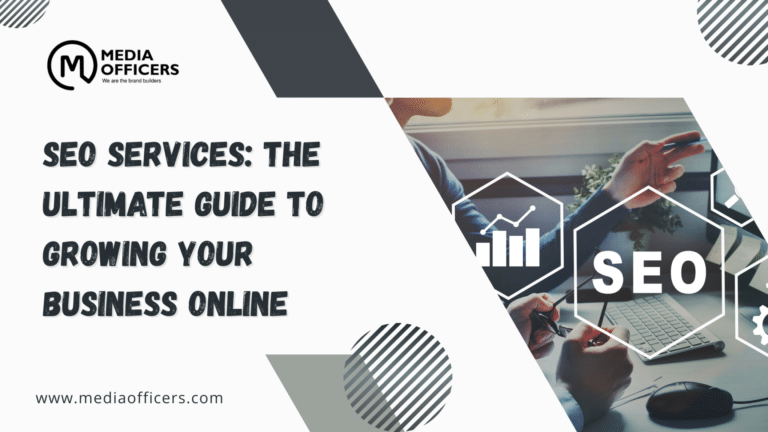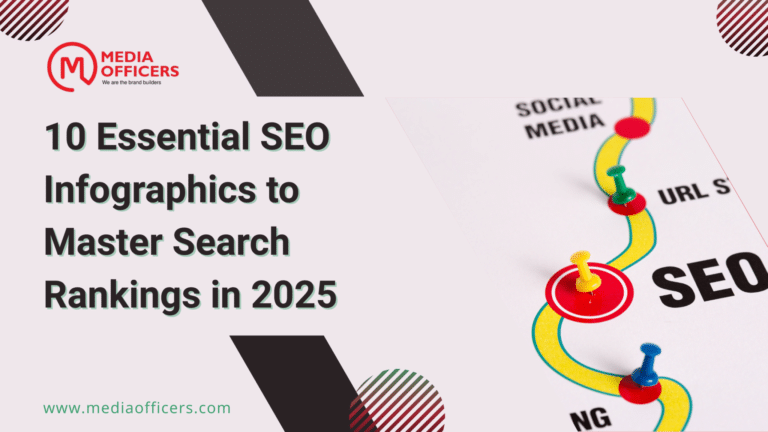Artificial Intelligence (AI) has transformed the landscape of search engine optimization (SEO). AI, which simulates human intelligence in machines, is utilized in SEO to analyze data, automate tasks, and make predictions based on patterns. This technology has significantly influenced how search engines rank websites and present results to users.
SEO professionals now employ AI to gain insights into user behavior, create personalized content, and enhance website visibility in search engine results pages (SERPs). AI’s capacity to process and analyze vast amounts of data at unprecedented speeds enables SEO experts to develop a more comprehensive understanding of user intent, preferences, and behavior. This information facilitates the creation of more targeted and relevant content.
AI-powered tools also automate various SEO tasks, including keyword research, content optimization, and link building, allowing professionals to focus on strategic planning and creative aspects of their work. As AI technology continues to advance, its influence on SEO practices is expected to grow, further shaping website optimization techniques and content creation strategies to meet the evolving demands of users and search engines.
Key Takeaways
- AI is revolutionizing the way search engine algorithms work, impacting the way websites are ranked and displayed in search results.
- Voice search and AI-powered assistants are becoming increasingly popular, changing the way users interact with search engines and consume information.
- AI can be leveraged for content creation and optimization, helping businesses create more relevant and engaging content for their target audience.
- Personalization and user experience are being enhanced with the help of AI in SEO, providing users with more tailored and relevant search results.
- AI is playing a crucial role in predictive analytics and SEO strategy, helping businesses make data-driven decisions and stay ahead of the competition.
5 key roles that Artificial Intelligence (AI) plays in shaping the future of SEO:
1. Enhanced Search Engine Algorithms
AI powers search engine algorithms like Google’s Rank Brain and BERT, improving the way search engines understand and process user intent and content. These AI-driven algorithms focus on delivering more accurate and relevant search results, which means businesses need to optimize for user experience and natural language rather than just keywords.
2. Automating SEO Tasks
AI tools help automate repetitive SEO tasks such as keyword research, site audits, and content optimization. This saves time and improves efficiency, allowing SEO professionals to focus on strategic decision-making. AI-powered tools can analyze vast amounts of data and provide actionable insights in a fraction of the time it would take manually.
3. Content Creation and Optimization
AI is now being used to assist in content creation by generating blog posts, product descriptions, and other written content. Additionally, AI tools can optimize existing content for better SEO performance by suggesting improvements based on search trends, readability, and user engagement.
4. Voice Search Optimization
With the rise of AI-powered voice assistants like Siri, Alexa, and Google Assistant, optimizing for voice search has become crucial. AI is transforming how search queries are handled, favoring conversational language. SEO strategies now need to consider natural language and long-tail keywords to align with the voice search trend.
5. User Experience (UX) Enhancement
AI-driven insights can help improve user experience by analyzing how users interact with websites. From tracking engagement metrics to identifying areas for improvement, AI tools guide businesses in enhancing website design, content, and navigation. Better UX leads to higher engagement, lower bounce rates, and ultimately better SEO rankings.
Understanding the Impact of AI on Search Engine Algorithms
From Keyword-Based to Holistic Optimization
This shift has led to a move away from keyword-based optimization towards a more comprehensive approach that considers user intent, semantics, and natural language processing. AI has enabled search engines to better understand the quality and relevance of content, allowing them to identify patterns and trends in user behavior and determine which content is most likely to satisfy a user’s query.
Emphasis on High-Quality Content
As a result, there is a greater emphasis on creating high-quality, authoritative content that provides value to users. This type of content is more likely to rank higher in search engine results pages (SERPs). Additionally, AI has influenced the way search engines evaluate website performance, user experience, and mobile-friendliness, all of which are crucial factors in determining search rankings.
A New Era in Search Engine Evaluation
The integration of AI in search engine algorithms has marked a significant shift in how search engines evaluate websites. With AI, search engines can now assess website performance, user experience, and mobile-friendliness more accurately, leading to more relevant and personalized search results for users.
The Rise of Voice Search and AI-Powered Assistants

The rise of voice search and Artificial Intelligence (AI)-powered assistants has had a profound impact on SEO. With the increasing popularity of devices such as smartphones, smart speakers, and virtual assistants, more users are turning to voice search to find information and perform tasks. This has changed the way people search for information, as voice queries tend to be more conversational and long-tail in nature compared to traditional text-based searches.
Artificial Intelligence (AI) plays a critical role in understanding and interpreting voice queries, as it enables virtual assistants to recognize speech patterns, language nuances, and user intent. This has led to a shift in SEO strategies, with a greater emphasis on optimizing for natural language queries and conversational content. Additionally, AI-powered assistants such as Siri, Alexa, and Google Assistant rely on Artificial Intelligence (AI) algorithms to deliver personalized and contextually relevant search results based on user preferences and behavior.
As voice search continues to gain traction, SEO professionals must adapt their strategies to ensure their content is optimized for voice queries. This includes creating content that answers specific questions, optimizing for local search queries, and providing concise and relevant information that is easily accessible through voice-enabled devices.
Leveraging AI for Content Creation and Optimization
Artificial Intelligence (AI) has transformed the way content is created and optimized for search engines. With the help of natural language processing and machine learning algorithms, AI-powered tools can analyze vast amounts of data to identify trends, topics, and keywords that resonate with target audiences. This has enabled SEO professionals to create more targeted and relevant content that aligns with user intent and search engine requirements.
Artificial Intelligence (AI)-powered content optimization tools can also analyze existing content to identify areas for improvement, such as keyword usage, readability, and relevance. This allows SEO professionals to make data-driven decisions when optimizing content for search engines. Additionally, AI can help in generating content ideas, identifying trending topics, and even automating the process of content creation through tools such as natural language generation.
Furthermore, Artificial Intelligence (AI) has also influenced the way content is personalized for different user segments. By analyzing user behavior and preferences, AI can help in creating personalized content recommendations that cater to individual interests and needs. This level of personalization not only enhances the user experience but also improves the chances of content being discovered and ranked by search engines.
Personalization and User Experience with AI in SEO
Personalization and user experience have become key focus areas for SEO with the help of AI. By leveraging AI algorithms, SEO professionals can gain insights into user behavior, preferences, and engagement patterns. This allows for the creation of personalized experiences that cater to individual needs and interests.
Personalized content recommendations, targeted offers, and customized user journeys are all made possible through AI-powered tools that analyze user data to deliver relevant and timely content. AI also plays a crucial role in enhancing user experience by optimizing website performance, mobile-friendliness, and accessibility. With machine learning algorithms, SEO professionals can identify areas for improvement on websites to ensure a seamless and intuitive user experience.
This includes factors such as page load speed, navigation structure, and content layout, all of which contribute to higher engagement and better search rankings. Furthermore, AI-powered chatbots and virtual assistants have become integral parts of enhancing user experience on websites. These tools can provide instant support, answer user queries, and guide users through their journey on a website.
By leveraging natural language processing and machine learning, these AI-powered assistants can understand user intent and provide relevant information in real-time, ultimately improving user satisfaction and retention.
The Role of AI in Predictive Analytics and SEO Strategy

Proactive Identification of Potential Issues
Predictive analytics powered by AI also enables SEO professionals to identify potential issues or challenges before they arise. By analyzing patterns and trends in data, AI can flag potential algorithm updates, competitive threats, or performance issues that may impact search rankings. This proactive approach allows SEO professionals to stay ahead of the curve and adapt their strategies accordingly.
Data-Driven Strategy Development and Execution
Additionally, AI has also influenced the way SEO strategies are developed and executed. By leveraging predictive analytics, SEO professionals can identify new opportunities for growth, prioritize resources effectively, and allocate budgets based on expected outcomes. This level of strategic insight enables SEO professionals to make informed decisions that drive sustainable results over time.
Optimizing Strategies with Predictive Insights
By using AI-powered predictive analytics, SEO professionals can optimize their strategies based on predictive insights rather than relying solely on reactive measures. This allows them to stay ahead of the competition and drive sustainable results over time.
Ethical Considerations and the Future of AI in SEO
As Artificial Intelligence (AI) continues to shape the future of SEO, ethical considerations have become increasingly important. With the power of AI comes the responsibility to use it ethically and transparently. This includes considerations around data privacy, algorithm bias, and the impact of AI on user trust and autonomy.
AI-powered tools rely on vast amounts of data to function effectively. However, concerns around data privacy and security have raised ethical questions about how this data is collected, stored, and used for SEO purposes. SEO professionals must ensure that they are transparent about the data they collect and how it is used to optimize websites and content.
Algorithm bias is another ethical consideration when it comes to Artificial Intelligence (AI) in SEO. Machine learning algorithms are only as good as the data they are trained on, which means there is a risk of bias based on historical data or human input. SEO professionals must be mindful of this when using AI-powered tools for decision-making processes to ensure fair and unbiased outcomes.
Furthermore, the impact of AI on user trust and autonomy cannot be overlooked. As Artificial Intelligence (AI) continues to personalize content and experiences for users, there is a fine line between enhancing user experience and infringing on user autonomy. SEO professionals must strike a balance between personalization and privacy to maintain trust with their audience.
In conclusion, the future of Artificial Intelligence (AI) in SEO holds great promise for revolutionizing the way websites are optimized for search engines and how content is created for users. As AI continues to advance, it will be crucial for SEO professionals to adapt their strategies ethically while leveraging the power of AI to enhance user experience, predict trends, personalize content, and optimize websites effectively. By understanding the impact of Artificial Intelligence (AI) on search engine algorithms, voice search, content creation, predictive analytics, personalization, and ethical considerations in SEO, professionals can stay ahead of the curve in an ever-evolving digital landscape shaped by AI.
If you’re interested in learning more about the impact of AI on SEO, you should check out this article from Media Officers, a leading SEO company in Chandigarh. They discuss the ways in which AI is shaping the future of SEO and how businesses can adapt to these changes. You can read the full article here.
FAQs
What is AI?
Artificial Intelligence (AI) is revolutionizing the landscape of SEO, driving more intelligent, efficient, and user-centered strategies.AI, or artificial intelligence, refers to the simulation of human intelligence in machines that are programmed to think and act like humans. This includes tasks such as learning, problem-solving, and decision-making.
What is SEO?
SEO, or search engine optimization, is the practice of increasing the quantity and quality of traffic to your website through organic search engine results. This is achieved through various strategies and techniques to improve a website’s visibility and ranking on search engine results pages.
How is AI shaping the future of SEO?
AI is shaping the future of SEO by enabling more advanced and sophisticated algorithms that can better understand and interpret user intent, improve search results, and provide more relevant and personalized content to users. AI is also being used to automate and streamline various SEO tasks, such as keyword research, content optimization, and link building.
What are some AI technologies used in SEO?
Some AI technologies used in SEO include natural language processing (NLP), machine learning, and deep learning. These technologies are used to analyze and understand user queries, optimize content for search engines, and improve the overall search experience for users.
How does AI impact keyword research in SEO?
AI has revolutionized keyword research in SEO by enabling more accurate and comprehensive analysis of search queries and user intent. AI-powered tools can identify relevant keywords, analyze search trends, and provide insights into user behavior, allowing for more targeted and effective keyword optimization strategies.
What are the benefits of AI in SEO?
Some benefits of AI in SEO include improved search result accuracy, enhanced user experience, increased efficiency in SEO tasks, and the ability to adapt to evolving search algorithms and user behaviors. AI also allows for more personalized and relevant content delivery, ultimately leading to better engagement and conversions.
Conclusion
Artificial Intelligence (AI) is revolutionizing the landscape of SEO, driving more intelligent, efficient, and user-centered strategies. From enhancing search engine algorithms to automating SEO tasks, AI helps businesses stay competitive in an ever-evolving digital world. Its role in content creation, voice search optimization, and improving user experience ensures that SEO is no longer just about keywords, but about understanding user intent and delivering the best possible experience.
As AI continues to evolve, businesses that leverage its capabilities will gain a significant edge in the SEO space. By embracing AI-driven tools and strategies, companies can not only improve their search rankings but also future-proof their digital marketing efforts. Ultimately, AI is shaping SEO into a smarter, more dynamic field that prioritizes relevance, efficiency, and user satisfaction.






